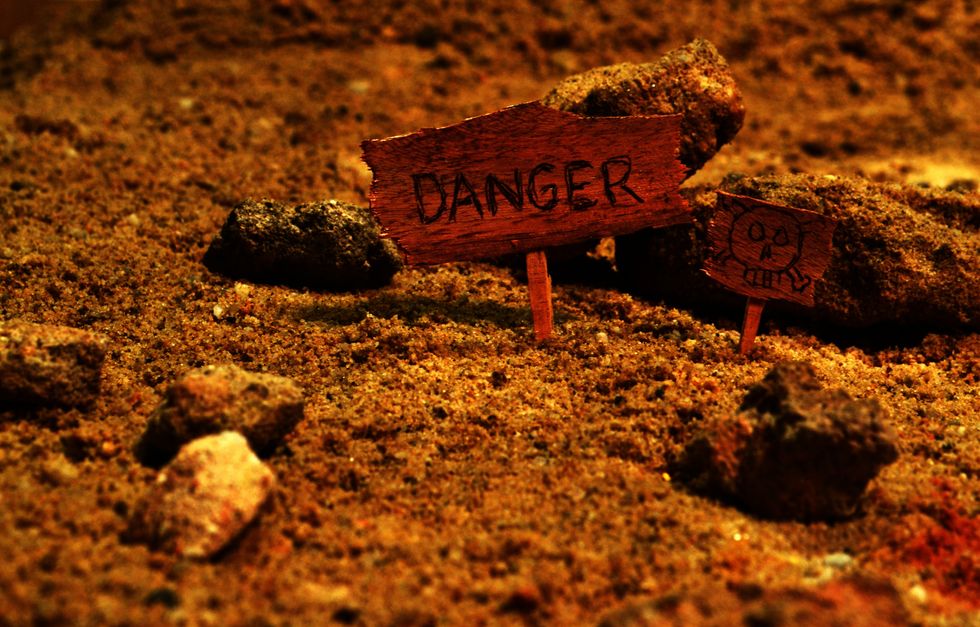Trigger Warnings have been debated for years. The decision whether or not to use them and when to use them effectively has been a major physiological decision. Universities have been obligated to utilize these warnings for potentially offensive cases.
However, how do we actually know when something is going to be offensive? Doesn’t everything have the potential to be offensive? Should universities be required to use these statements?
Trigger warnings have been stressed, and they are desired by some students. Yet, they are not necessarily beneficial in protecting the individual. It creates a safe place on campus, yes, but it doesn’t protect them from the outside world, which we are here to learn to live in.
A Trigger Warning is a statement at the start of a lecture, a piece of writing, video, etc that alerts the audience to the fact that it contains potentially distressing material.
People argue that this is vital for those who have undergone trauma, and these topics of discussion can trigger an individual to relapse back into the state of trauma. There is a movement arising to scrub campuses clean of words and ideas that might cause discomfort or offense.
If we scrub campuses clean, what is this teaching us? It isn’t teaching us how to deal with issues or offensive ideas. It is causing generations to be raised with super thin skin.
Having a campus as a safe place is aspiring. However, you cannot erase everything that might cause discomfort or offense because there is no way to draw the line. Anything can be classified as offensive if it is spun a certain way.
This debate has gone as far as causing professors to lose their jobs. Francis Schmidt, a professor at Bergen Community College was suspended because he received complaints after he posted a picture of his daughter wearing a shirt that read, “I WILL TAKE WHAT IS MINE WITH FIRE & BLOOD.” This quote is from the HBO show Game of Thrones. People complained, saying that the word fire could refer to AK-47s.
Another professor at Harvard was asked not to teach rape law because it could be offensive. This was in a law class! The professor compared this to “a medical student who is in training to be a surgeon but who fears that he’ll become distressed if he sees or handles blood.” If something in a profession triggers you, don’t choose that profession. However, don’t try and hinder other students’ education because you can’t handle a topic.
Yes, a simple statement can be considered an easy fix. Yet, most professors have a detailed syllabus stating the topics that are being covered. This is the warning. If you know that a topic is something that you can’t handle right now, don’t go to class. Remove yourself from that situation.
Also, you can’t necessarily plan for discussion. There was a professor who almost got suspended because the idea of race was brought up in the discussion, and there wasn’t a trigger warning.
There wasn’t a way for him to know that. The complaint derived from someone who wasn’t offended themselves, but she was speaking on the behalf of people who could be offended.
These trigger warnings are causing more harm than good. People can acquire fears not just from their own experiences, but from observation of others and social learning.
This means that people can apply not just to those who are traumatized, but to all students. This creates an atmosphere that they are encouraged to believe that there is something dangerous/damaging about the topics that are being discussed.
The idea of trying to erase these ideas from campuses is not okay. We are here to learn and become better-rounded people. Avoiding this will cause people to not gain the knowledge of everyday topics. We won’t grow as individuals. We won’t be able to empathize. We won’t learn how to deal with these problems effectively. When something offensive happens outside of campus in the real world, we can’t just walk away from it.
We can’t complain because there wasn’t a trigger warning. Your boss isn’t going to care if something triggers you, and you complain because LIFE DOESN’T COME WITH A TRIGGER WARNING. You just have to live.
Instead of trying to protect students from the potential offensive and discomforting topics, ideas, words, and experiences that they will inevitably encounter, universities should do what they can to teach students to thrive in a world full of topics, ideas, words, and experiences that they can’t control.
















